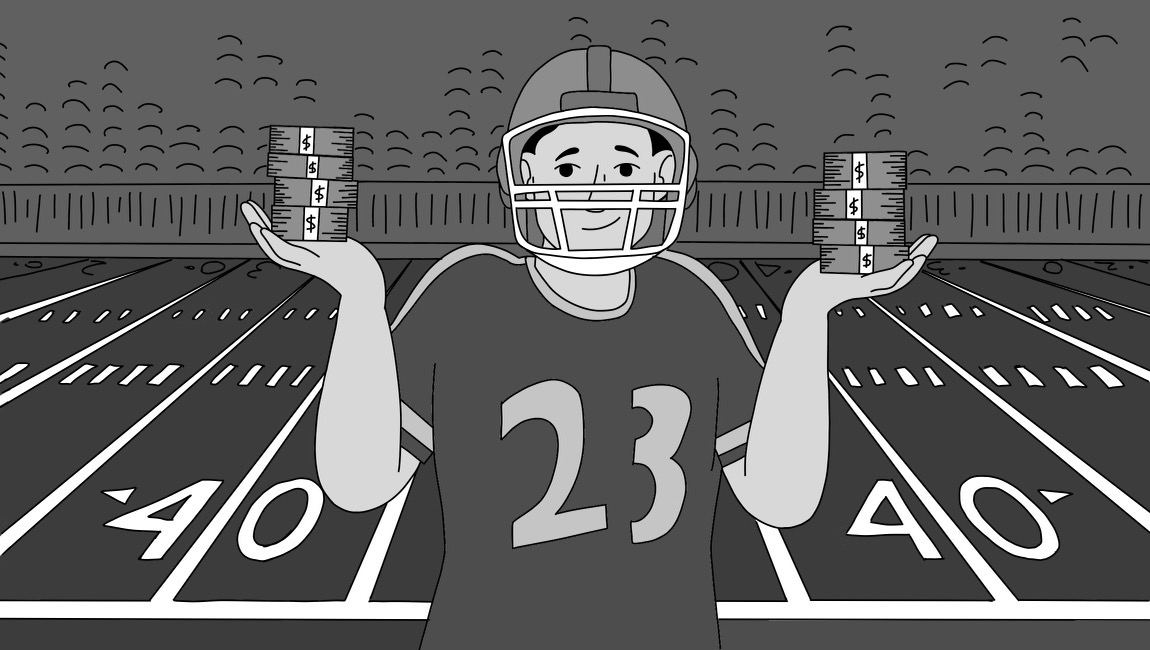The Pacific-12 (Pac-12) Conference holds the most national championships of any conference in the country and is referred to as the “Conference of Champions” by announcers and fans alike. But in the span of a year, the Pac-12 disintegrated as a result of television contracts, leaving in its ashes long standing rivalries and the geography-oriented nature of conferences. The dominance of football in television revenue caused universities to shift their focus toward profit and away from rational decision-making for the benefit of their entire athletic programs. This indicates a growing trend of professionalization in college athletics, which will create a small pool of high-performing athletic programs and harm the athlete experience.
The most powerful players in the game are not on the field or in the pool— they are those who hand out multi-million dollar contracts. Fox Sports is the majority owner of the Big Ten network. Four universities moved from the Pac-12 to the Big 10 for contracts worth more than double the television deals on the West Coast according to CBS Sports. Networks are wielding their monetary power to poach specific high-performing teams, passing over institutions which they deem less valuable. While the University of California Los Angeles (UCLA), the University of Southern California (USC), University of Washington and University of Oregon have made significant financial improvements by joining a Power Five conference, remaining Pac-12 schools are left scrambling to find alternatives.
The schools left out of the initial jumps to Power Five conferences are stuck: most networks are unwilling to offer them good contracts and athletic department heads from other institutions don’t want to lose any of their own contract revenues to new schools.
Stanford has had a difficult time finding a future conference despite being an esteemed institution in both athletics and academics because its football program is not strong enough to be offered a large television contract. However, since football is one of the Cardinal’s greatest recipients of alumni giving, they can’t afford to join a conference that isn’t willing to write a suitable financial agreement, nor is it attractive for them to join a small, non-Power Five conference.
The Cardinal’s recent struggle is one example in a larger scope of National Collegiate Athletics Association (NCAA) issues stemming from television networks’ increased focus on the money grab. They have realized profit lies in picking out top football schools rather than paying for a whole conference of teams. The system’s sole focus on money will exclude many schools with highly successful Olympic sports and lesser football teams from strong contracts and potentially create two “super-conferences” in the NCAA, with everyone else hanging on the outskirts.
In an effort to maximize profit, universities have lost sight of the geographical challenges that come with coast to coast conferences. Now that the Big 10 spans from New Brunswick to Seattle, travel is going to cause significant problems for many non-football sports. The football teams will play six away games over the course of the season, with a few against nearby universities. They also play on Saturdays, making it fairly simple to fly out Friday and miss very little school. Alternatively, a sport like softball will travel every weekend, and Thursday night games will in some cases mean flying out Wednesday night and getting home very late before the next school day. Student-athletes have a maximum requirement of 20 hours per week for their sport according to the NCAA website, but that does not include travel time. The changes flood already full schedules and show collegiate prioritization of the athlete in student-athlete.
According to its website, the University of Oregon’s mission statement says they “are devoted to educating the whole person, and to fostering the next generation of transformational leaders and informed participants in the global community.” Those are all pleasant words, but institutions cannot claim to exist for the purpose of education if they make decisions for their future entirely on money and at the direct expense of many of their athletes. Moving to a football-focused conference will negatively affect many Olympic sports due to the lack of focus on their programs. The Big 10 isn’t known for their baseball. Now that former Pac-12 teams with very strong baseball programs are joining the league, their opponents won’t be as competitive as they were on the West Coast. Many teams are left questioning the future of their organizations, as their sports receive little to no attention in the conferences they join.
As college sports move into the professional sphere, universities will continue to sacrifice student-athlete life to foster a profitable football team. Traditional values have taken a backseat to money grabs, and collegiate sports around the country could face irreparable damage if universities continue to make decisions entirely for the good of their bank accounts.































